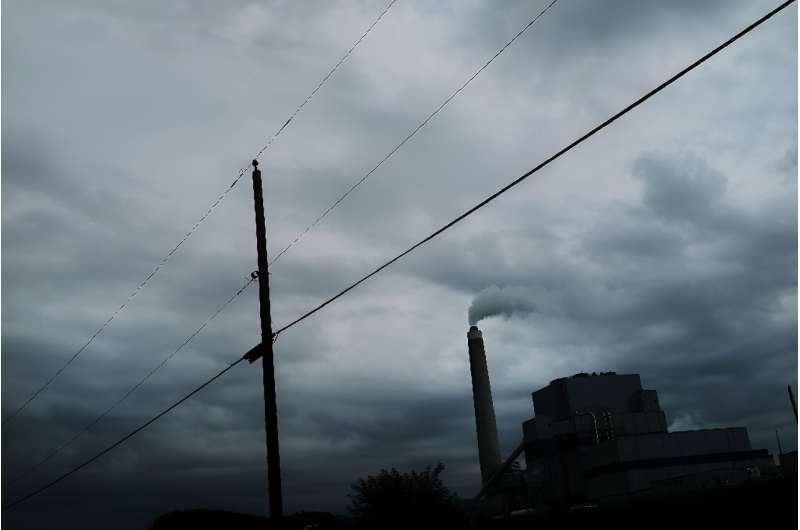This article has been reviewed according to Science X's editorial process and policies. Editors have highlighted the following attributes while ensuring the content's credibility:
fact-checked
reputable news agency
proofread
Biden strengthens US soot regulations, angering industry

President Joe Biden's administration on Wednesday announced tough new air quality standards it said were sorely needed to protect the health of vulnerable communities, though industry groups have said the move would harm domestic manufacturing.
It comes as the Democratic incumbent faces a tough election rematch against the likely Republican candidate Donald Trump, who rolled back dozens of air pollution rules when he was in office.
The new rule by the Environmental Protection Agency (EPA) concerns fine particulate matter, commonly known as soot: a widespread, deadly pollutant linked to asthma, heart disease and lung cancer.
Under the new standard, levels of PM2.5 (particles that are 2.5 micrometers in diameter and smaller) will not be permitted to exceed an average annual level of 9 micrograms per cubic meter, down from the current 12 micrograms per cubic meter.
The European Union's current limit is 25 micrograms per cubic meter, with a proposal to meet 10 by 2030.
Britain's standard is 20, to reach 10 by 2040, while the World Health Organization recommends countries don't exceed annual averages of 5 micrograms per cubic meter.
"Today's action is a critical step forward to better protect workers, families and communities from the dangerous and costly impacts of fine particle pollution," EPA chief Michael Regan told reporters on a press call.
Vehicles, smokestacks and fires are common sources of fine particles, which also form when gases emitted by car engines, power plants and industrial processes react in the atmosphere.
The agency estimated the action would prevent up to 4,500 premature deaths and 290,000 lost workdays, and generate up to $46 billion in net health benefits in 2032, the first year that states would be required to meet the new standard.
Industry critical
Wednesday's announcement was hailed by environmental and health groups.
"The body of science around this pollution is so robust—we know it takes people before their time, premature deaths from heart attacks, we know that it gives children and adults asthma and many other sicknesses," said Abbie Dillen, president of the environmental law nonprofit Earthjustice.
"We could not be more grateful on behalf of all of the clients that we've represented over the years," she added.
Terrance Bankston, Friends of the Earth's senior ports and freight campaigner, said he "celebrated" the decision but attention must now turn to implementing it through actions, such as reducing soot emissions from the nation's ports, a major offender.
Higher soot emissions occur in areas that are poorer and home to communities of color, with Latino and Black Americans more exposed and more likely to die than their white counterparts.
Industry groups have said the rule would threaten US manufacturing operations, and the issue threatens to become yet another battleground in key swing states in the 2024 presidential election.
"The Biden administration's new PM2.5 standard takes direct aim at manufacturing investment and job creation, in direct contradiction to the president's stated goal of strengthening manufacturing in communities all across America," said National Association of Manufacturers President and CEO Jay Timmons.
"Manufacturers will consider all options to reverse this harmful and unnecessary standard, because it is our duty to stand against policies that hold our country back," he added.
But the EPA has disputed the characterizations, calculating that 99 percent of the country's more than 3,100 counties will be in compliance by 2032 because of an overall downward trend in air pollution from other initiatives.
Towns and cities across the country are required by the agency to maintain air quality monitoring stations and report back their findings, which inform permitting decisions and determine whether a jurisdiction is meeting required standards.
Jurisdictions will be allowed to request exemptions for soot generated by wildfires, which have grown in size, duration and intensity as a result of human-caused climate change.
© 2024 AFP





















